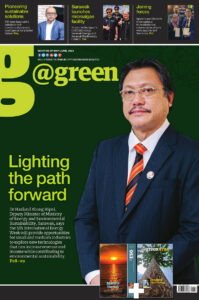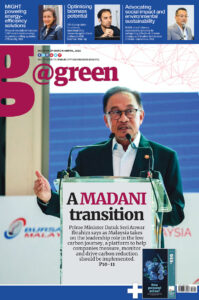Whilst Malaysia was in the middle of declaring its climate commitments at COP26, the Washington Post reported that the country’s climate pledges were built on flawed data. It claimed that Malaysia’s Biennial Update Report (BUR) to the United Nations seemed to be from a ‘parallel universe’.
“The plan to save the world from the worst of climate change is built on data. But the data the world is relying on is inaccurate,” said the report.
Minister of Environment and Water, Dato’ Sri Tuan Ibrahim Tuan Man, expressed regret over the claim.
In a media statement issued by the Ministry of Environment and Water (KASA), he clarified that Malaysia undertook a very rigorous process when producing the BUR as required by the United Nations Framework Convention on Climate Change (UNFCCC). He highlighted the stringent process in the BUR production, in which the data had to go through experts’ careful analysis and verification.
“We would like to stress that all information and values reported in the BUR undergo multiple stakeholder consultations, involving data providers, experts, academicians, NGOs and the private sector.
“A clear institutional arrangement is in place where a bottom-up approach is implemented, and these details are reflected in the BUR, and the information used in developing the BUR is based on national data and published scientific literature and is reported transparently.
“We would like to emphasise that Malaysia is in line with the requirements by the UNFCCC, which requires the use of the 2006 IPCC Guidelines for National GHG Inventories in estimating and reporting its National GHG inventory. The guidelines require reporting only anthropogenic sources and removals of greenhouse gases,” he stated.
In addition, he also explained that five land use categories are estimated for the Land Use, Land Use Change and Forestry (LULUCF) sector. According to the statement, emissions and removals from peatlands are covered under the Forest Land and Cropland.
“The emissions from deforestation, croplands conversion, peatland drainage, forest fires and commercial harvest are reported as well as removals from forest and cropland. The values reported are net values after subtracting the emissions.
“As such, Malaysia regrets the action of the Washington Post in questioning the integrity of the UNFCCC process and outcome,” said Tuan Ibrahim.








